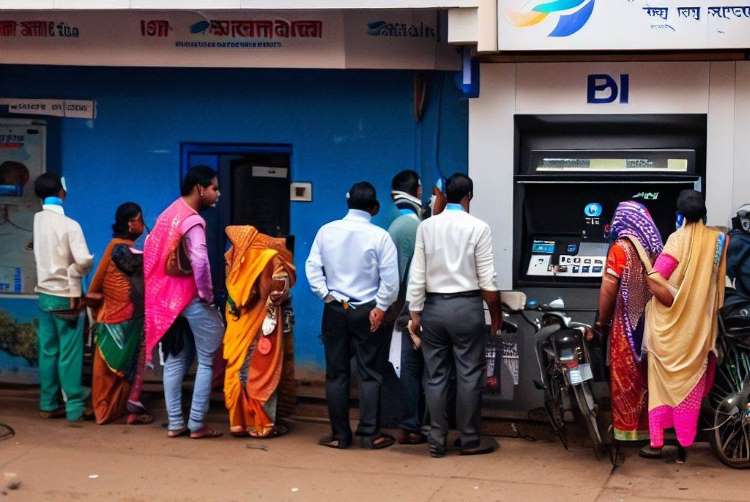
Sustainability focus: India has reiterated its commitment to sustainable development in a report outlining the country’s priorities for the G20 presidency. The report, titled “India’s G20 Presidency Emerging Issues April 2023,” touches upon issues such as sustainable development, digital transformation, and global economic governance.
The report prepared by the Prime Minister’s Economic Advisory Council also talks about issues such as climate finance, monetary policy, and circular economy. The government plans to focus on promoting clean energy and reducing carbon emissions, as well as addressing issues related to water management and waste disposal. India is currently the world’s third-largest emitter of greenhouse gases, and the government has set a target of meeting 40% of its energy needs from renewable sources by 2030.
Another major area of focus for India’s G20 presidency is digital transformation. The report emphasizes the need to leverage digital technologies to drive economic growth and improve public services. The government plans to prioritise initiatives related to e-commerce, fintech, and artificial intelligence, as well as strengthening cybersecurity measures.
READ I Closing the biodiversity gap: How biocredits could save our ecosystems
In addition to these areas, the report also highlights India’s commitment to promoting inclusive growth and strengthening global economic governance. The government plans to focus on issues related to international trade, finance, and taxation, as well as addressing concerns related to income inequality and the digital divide.
India had assumed the G20 presidency in December 2022. The G20 is an international forum comprising 19 countries and the European Union, representing around 80% of the global GDP. As the host country, India will have the opportunity to shape the agenda and lead discussions on a range of global issues.
the report signals India’s determination to play a leading role in shaping the future of the global economy and promoting sustainable and inclusive growth. The government’s priorities reflect a recognition of the interconnected nature of the world’s challenges and the need for coordinated action to address them.
The document emphasises the need for effective global governance to address pressing global challenges, including health security and disaster resilience. Some of the ideas and initiatives proposed in the document are creating a G20 SME accelerator programme, establishing a global digital ethics framework, promoting green investments and clean energy transitions, and strengthening disaster risk reduction efforts.
Growth with equity
India looks to achieve sustainable economic development through a four-pronged strategy. The strategy emphasises sustainability, innovation, and cooperation, with a focus on promoting inclusive and resilient economic growth.
Building a resilient and sustainable infrastructure: India looks to invest in sustainable infrastructure, including renewable energy, electric vehicles, and green buildings, to promote sustainable and resilient economic growth.
Promoting innovation and digitalisation: India plans to leverage new technologies and innovation to drive economic growth and job creation, including through initiatives such as the Digital India program.
Creating jobs and promoting inclusive growth: India seeks to promote inclusive growth by creating jobs, promoting entrepreneurship, and enhancing skills and education.
Strengthening international cooperation: India plans to work with other countries and international organizations to address global challenges such as climate change, poverty, and inequality, and promote sustainable economic growth.
Sustainability central to development effort
Earlier, India was known for its environmental challenges, with pollution, deforestation, and poor waste management leading to significant public health risks. However, in recent years, the country has made significant strides towards sustainability, propelled by a combination of government policies, public awareness, and technological innovations.
It all began with India’s commitment to the Paris Agreement on climate change, which saw the country pledge to reduce its carbon emissions intensity by 33-35% by 2030. To achieve this goal, the government launched a range of initiatives, including the National Clean Energy Fund, which aims to promote the adoption of renewable energy sources such as solar and wind power.
In addition to these efforts, India has also taken steps to promote sustainable agriculture practices, recognizing the impact of farming on the environment. The government launched the Soil Health Card scheme, which provides farmers with guidance on the appropriate use of fertilizers and water management, reducing the negative impact on soil quality and groundwater levels.
Moreover, the Swachh Bharat Abhiyan, or Clean India Mission, has been instrumental in promoting better waste management practices across the country. The program aims to make India litter-free by encouraging the proper disposal of waste, including the installation of waste bins and the construction of public toilets. As a result, cities like Indore and Bhopal have emerged as leaders in cleanliness, with a focus on segregation, composting, and recycling.
India has embraced the potential of technology in driving sustainability, with a focus on innovations such as electric vehicles and smart cities. The government has set ambitious targets for electric vehicle adoption, with a goal of 30% electric vehicle sales by 2030. Similarly, the Smart Cities Mission aims to create sustainable urban spaces that promote energy efficiency, waste management, and public transport.
These efforts towards sustainability are set to become even more significant. By promoting the adoption of sustainable practices globally and leveraging its technological expertise, India has the potential to be a leader in the transition to a more sustainable future.
Digital transformation
India’s strategy for digital transformation is focused on three key pillars, says the document.
Digital infrastructure: India aims to build a robust digital infrastructure that includes high-speed internet connectivity, a strong telecom network, and universal access to digital services.
Digital inclusion: India is working to ensure that digital transformation benefits all segments of society, particularly those who are economically or socially disadvantaged. This includes providing digital skills training, promoting digital entrepreneurship, and expanding access to affordable digital devices and services.
Digital innovation: India is committed to fostering digital innovation and entrepreneurship. This includes creating a supportive regulatory environment for startups, promoting research and development in emerging technologies such as artificial intelligence and blockchain, and leveraging digital technologies to improve public services and governance.
(This article has inputs from artificial intelligence.)
